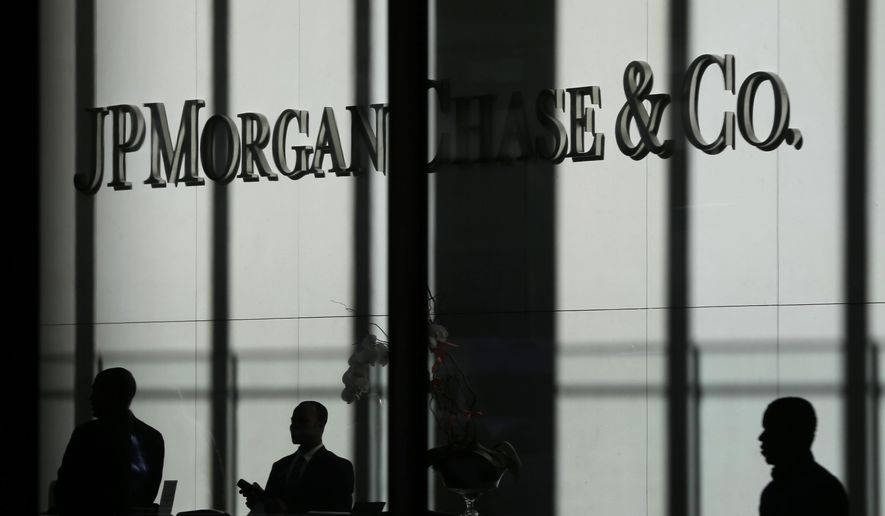Former Trump spokesman Taylor Budowich learned Wednesday that his bank, JPMorgan Chase, and its legal counsel with ties to the Obama administration, had turned over his financial records to the House Jan. 6 committee without giving him a chance to challenge the subpoena.
He accused JPMorgan Chase and its legal counsel, former Attorney General Loretta Lynch, of colluding with the committee to deny him a legal challenge to the subpoena.
“Instead of allowing me to object to these unreasonable demands and impossible timeline, JPMorgan Chase, under the legal counsel of former Obama Attorney General Loretta Lynch, has handed over my private banking records to the Committee,” Mr. Budowich said in a statement to The Washington Times.
Mr. Budowich said the committee bypassed him in issuing the subpoena to his bank. He sued to block the release of the records but a federal judge revealed Wednesday that the committee already had his financial records.
He said he will file a new motion in court for the documents to be disgorged from the committee, which is investigating the attack on the Capitol by a pro-Trump mob attempting to stop the certification of President Biden’s election win.
Neither JPMorgan nor the House Jan. 6 committee responded to a request for comment.
Mr. Budowich said he was given just hours to respond in court after becoming aware of the subpoena, and accused the bank and the committee of working together to ensure he was unable to object to the subpoena.
“JPMorgan Chase and the Select Committee spent Christmas doubling down on their abuse of process designed to deprive me of my due process rights,” he said. “Their collaborated strategy was apparently manufactured to prevent me from seeking any judicial relief prior to production of my private financial records.”
JPMorgan received the subpoena on Nov. 23 and was first given a Dec. 7 deadline by the committee to produce the documents, according to documents reviewed by The Times.
The committee later extended the deadline to Dec. 24 upon consultation with JPMorgan.
It was not until Dec. 21, according to Mr. Budowich’s complaint, that JPMorgan attempted to notify him of the subpoena.
Mr. Budowich said the committee overnighted a formal letter alerting him to the subpoena which arrived at his residence in California on Dec. 22.
He did not receive the letter until Dec. 23 after returning to California from his in-person deposition before the committee on Dec. 22, he said.
He was given until Dec. 24 at 5:00 p.m. to respond in court to block the release of the records. The committee denied a request by his lawyer late in the afternoon Friday to extend the deadline.
Mr. Budowich said the committee was aware that he intended to challenge the subpoena in court.
“Neither entities are acting in good faith or in accordance with the law, and my attorney’s informed the Court that I will be filing an amended motion asking the Court to order the Select Committee to promptly return, sequester, or destroy the production and any copies it has, in light of the production of my private financial records as a customer of JPMorgan Chase,” he said.
In his complaint filed last week, Mr. Budowich said he had already turned over more than 1,700 pages of documents personally in response to a subpoena in November, and provided close to four hours of sworn testimony.
But he said the committee’s going after his bank records is out of bounds.
Mr. Budowich’s case is among a growing list of lawsuits filed by advisers to former President Donald Trump, rally organizers and others who say the committee has overstepped its bounds.
The Democrat-led committee has subpoenaed phone records from more than 100 individuals since beginning its probe in July.
Several former Trump advisers, including former Chief of Staff Mark Meadows, election lawyer Cleta Mitchell, and conservative public interest lawyer John Eastman, have received letters from their wireless providers alerting them that the committee demanded records, and have filed lawsuits to block the release of the records.
“What is happening to me through this process should not happen to any American. It is an affront to my individual rights and the Constitution,” he said. “I will continue to fight for both.”
• Joseph Clark can be reached at jclark@washingtontimes.com.




Please read our comment policy before commenting.